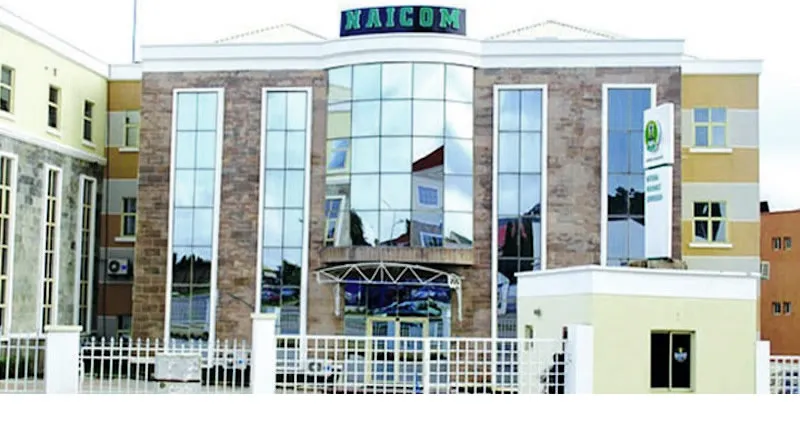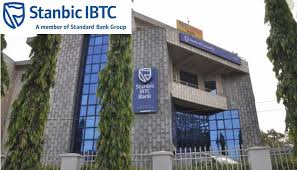
Seven out of the 58 underwriting firms in the country, listed in the Nigerian Stock Exchange have paid a sum of N116.636 billion as claims to policyholders who suffered insurance risks in nine months of 2023.
This was revealed in their last year’s financial reports in the sector, the claims marked a significant increase despite an economic challenge from N96.902 billion paid in the same period in 2022, representing a growth of 20.36 per cent.
An insurance claim is a formal request by a policyholder to an operator for coverage or compensation for a covered loss or policy event.
This, the underwriter validates the claim and, once approved, issues payment to the insured or an approved interested party on behalf of the insured.
The financial reports of the underwriting firms referring to in the industry as tier-one insurance operators include, AIICO Insurance Plc, Custodian and Allied Investment Plc, NEM Insurance Plc, AXA-Mansard Plc, Mutual Benefits Assurance Plc, Cornerstone Insurance Plc, Consolidated Hallmark Insurance Plc.
These increasing claims have shadowed the premium growth rate and overall profitability of insurance firms in the market. Several factors have contributed to the predicament, including economic challenges, inflation, and an upsurge in fraudulent claims.
In addition to the increased claims, these insurance companies reported N339.848 billion in gross premiums during the review period, showing substantial growth compared to the N274.628 billion reported in 2022.
The assessment of the financial report showed that the companies allocated 34.32 per cent of their premium revenue towards claims expenses, as opposed to 35.28 in the corresponding period of the previous year.
This slight reduction of 0.96 per cent in claims expenditure suggests a potential stabilisation in the market.
Analysts in the market observed that the rising claims recorded by underwriting firms in recent years deeply impacted their premium growth rate and overall profitability.
They also stressed that various economic challenges, including difficulties in accessing foreign exchange as the year progressed, have contributed hugely to the situation.
According to them, security challenges within the country and the ripple effects of Russia’s invasion of Ukraine have also further worsened the challenges faced by insurance companies in the market.
Besides, the decreased revenues of both federal and state governments, the devaluation of the naira, and the soaring energy costs have also added to the hurdles insurance operators face in Nigeria.
For AllCO Insurance Plc, their finances showed that it paid a total sum of N37.578 billion in claims in 2023, a 14.03 per cent increase from 2022, with a gross premium in the same period of N85.138 billion a 22.49 per cent increase from 2022.
Custodian and Allied Investment Plc – N21.958 billion claims paid in 2023 shows a 22.29 per cent increase from 2022. While accounting for a gross premium of N73.590 billion, a 14.22 per cent increase from 2022.
NEM Insurance Plc paid the sum of N5.826 billion in claims a 20.25 per cent increase from 2022 while a gross premium of N53.638 billion in the same year a 41.46 per cent increase from 2022)
For AXA Mansard Plc – N30.448 billion claims were paid in the nine months, a 25.62 per cent increase from 2022, while gross premium in the review period of N61.296 billion a 16.81 per cent increase from 2022.
Mutual Benefits Assurance Plc – N12.700 billion claims paid in 2023, a 26.89 per cent increase from 2022 with a gross premium in the same period of N34.347 billion a growth of 30.40 per cent.
Cornerstone Insurance Plc – N4.870 billion claims paid in the period, 105.83 per cent up from 2022 gross premium income in 2023: N20.858 billion a 40.16 per cent increase from 2022 as well.
Meanwhile, Consolidated Hallmark Insurance – N3.256 billion claims paid in 2023, down from N4.534 billion in 2022 with a gross premium in the same year of N10.981 billion a 20.91 per cent increase from 2022.
Speaking on the issue of claims payment to underwriting firms at one of the industry’s forums in Lagos, the Commissioner for Insurance, Sunday Thomas, said, “Claims payment has always been one aspect the sector is struggling to balance. The industry is paying massive claims though a few of the operators’ activities are jeopardizing the majority’s efforts.
Before now, the commission and stakeholders in the sector agreed to start ranking companies on the number of claims received and settled yearly. We intend to publish such a ranking for insurance consumers.
“It is always an issue that puts the entire industry on the edge. The commission is doing all it can to see that the non-settlement of claims is brought to its barest minimum in the sector.”
Reacted to the development in the market, at the last Insurers’ Committee Meeting in December 2023, the head, of Corporate Communications and Market Development at NAICOM, Rasaaq Salami, attributed the growth of the sector to several reforms the regulator undertook, especially under the current administration.
Salami said with the third quarter report of 2023, the industry has already exceeded the yearly premium of last year 2022 and by the time we close this year, we might be hitting the N1trillion mark based on that assessment, we think the industry has performed very well.”
In the same vein, the Managing Director/Chief Executive Officer, Royal Exchange General Insurance Company (REGIC), Ebelechukwu Nwachukwu, while explaining reasons for insurance industry growth linked it to continuous partnership with relevant insurance stakeholders to deepen penetration and improve acceptance in the country.
Nwachukwu, who is also the chairman of the sub-publicity committee of the Insurers Committee, noted that digitalization, product development, and the fact that consumers now have several platforms to interact with their insurers daily and different bodies to express grievances, have all made the industry stronger in recent times.
Improved positive customer experience, she believes, is critical in the next phase of insurance sub-sector development, promising that operators have and will continue to prioritise superior customer service delivery.








